Intro
Contents: Overview of presentation structure.
Welcome: Warm introduction to new clients, setting the stage for the journey ahead.
MyPlace Vision: Discuss the long-term aspirations of MyPlace and how it aims to redefine customer engagement in the hospitality industry.
MyPlace Mission Statement: Articulate the purpose of MyPlace, focusing on enhancing customer experiences and venue operations.
What is Loyalty: Explain the concept of customer loyalty in the context of repeat business and emotional attachment.
What is Customer Engagement: Describe the methods and benefits of actively keeping customers involved with your brand.
What Makes Apple Different - Simon Sinek’s Why: Use this to illustrate the importance of starting with ‘why’ when building a brand, comparing to Apple’s strategy for inspirational leadership and brand loyalty.
MyPlace Team Structure: Detail how MyPlace integrates with other Bepoz products and the team structure supporting it.
Key People: Introduce the main contacts for clients within the MyPlace team.
Your MyPlace Journey
Process Diagram: Display the full client engagement process from sales to BAU, indicating the current phase.
Phase Details: Brief dot points summarizing the goals and key activities of Phases 2 to 6.
Phase 2 | Getting Started
Discuss Client Goals: Understand current membership schemes and any specific goals or ambitions the client has.
Showcase Example Goals: Present case studies where MyPlace has helped other clients achieve their objectives.
IT Dependencies: Outline technical requirements such as port forwarding for Bepoz API.
Privacy Policy Compliance: Discuss the importance of having a compatible privacy policy, with examples in the appendix.
Email System Overview: Explain the use of Mailchimp for designing email templates and Mandrill for transactional emails, including the rationale behind using both.
App Naming Strategies: Offer guidance on choosing a compelling app name, with examples of good and bad practices.
Icon Design: Present examples of effective mobile app icons, explaining what works and why.
App Descriptions: Discuss how to write engaging app descriptions that resonate with potential users.
Vibrant App Listings: Tips on creating appealing app listings with dynamic images, linking to appendix for image specifications.
Phase 3 | MVP App Config
Standard Functionality Introduction: Explain the importance of starting with basic features for ease of adoption and training.
Initial Recommended Functionality: List the core features to include from day one.
Styling Your App: Discuss the 60-30-10 color rule for app design and its importance in visual hierarchy.
Contrast and Usability: Show examples of apps with good and poor usability based on design contrast.
Proposed App Palette: Present a color palette inspired by the client’s branding, with rationale.
Logo Requirements: Outline required logos and their sizes, including different types needed for various placements.
Phase 4 | UAT and Staff Training
What is UAT: Define User Acceptance Testing and its significance in the app deployment process.
Training Methods: Detail how training will be conducted (remote or onsite) to ensure staff are prepared for launch.
Urgency and Readiness: Motivate the client for a swift launch to start benefiting from the loyalty program immediately.
Phase 5 | Launch
Launch Expectations: Set realistic expectations for the initial phase post-launch.
Support and Guidance: Reassure continuous support from the MyPlace team during the launch.
Marketing Strategies: Provide creative marketing ideas to promote app sign-ups.
Member Onboarding Pathways: Outline effective member onboarding strategies to maximize early engagement.
Staff Incentives: Suggest incentives for staff to encourage app sign-ups.
Success Stories: Share examples of successful launches to inspire and assure clients.
Phase 6 | BAU
Definition of BAU: Explain what 'business as usual' entails post-launch.
Loyalty Program Evolution: Discuss how the loyalty program will evolve with new features and updates to keep engagement high.
Ongoing Support: Detail the continuous support structure including regular health checks and strategic reviews.
Success Team Commitment: Emphasize the ongoing commitment of the MyPlace success team.
Appendix
Supporting Material: Include detailed examples, templates, compliance guidelines, and image specifications needed for app setup and ongoing management.
